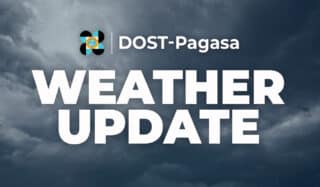METRO Pacific Tollways Corp. (MPTC) has revised its proposed concession contract for the Subic Clark Tarlac Expressway (SCTEx), removing a provision that would have ensured the government’s ability to pay obligations even if commercial targets are missed.
Instead, MPTC, chaired by Manuel V. Pangilinan, has offered to give the government a larger share in revenues from the toll highway, with both parties sharing the risk of lower-than-expected traffic figures.
“This new proposal is more aligned toward revenue sharing. What we are attempting now is to align the sharing of costs and revenues. They must be in the same proportion as each other,” MPTC president Ramoncito Fernandez said this week.
This is the third time that MPTC has been forced to revise its offer for the SCTEx. Under the previous proposal, 70 percent of toll and other revenues from SCTEx would go to MPTC, while the remaining 30 percent (raised from an original 20 percent) goes to the state-run Bases Conversion and Development Authority (BCDA).
However, if the BCDA’s share in revenues falls short of the amount needed for debt payments to the Japanese International Cooperation Agency (JICA), which funded the construction of SCTEx, MPTC said it would provide cash advances to cover the deficit. MPTC pledged to provide cash advances until 2016, but later extended this period to 2019 as it sought to sweeten its offer.
These cash advances, however, would be deductible from the BCDA’s future share in profits from the road.
Yearly payments to JICA for the SCTEx amounts to about P1.4 billion, but current traffic at the highway can only generate P900 million a year, the BCDA’s estimates showed.
Under the new proposal, the BCDA would enjoy a share of 50 percent of revenue.
Fernandez declined to go into the details of the new proposal, but said the provision for cash advances by MPTC to the government has been removed in favor of the new scheme that gives the government a larger share of revenue.
By raising the government’s share in revenues, the BCDA stands to earn more if traffic at SCTEx meets or exceeds targets.
But if vehicle traffic falls short of traffic, the government’s share in revenue may not be enough to meet debt payments. This means the BCDA would have to tap its other revenue streams to meet obligations instead of the ideal situation of the SCTEx paying for itself.



